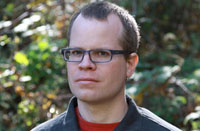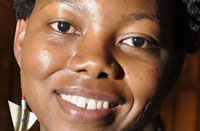
Reviews, reflections, conversations.

"Maybe the point is not to square them—to explain away how suffering and death coexist with bliss and beauty—but to enter into the space between them, where the discomfort is, and interrogate it." Alexis Smith, author of the novel Glaciers, chats with Benjamin Craig about war, fiction, and the distance of experience. more

Financial writers are tasked with one of the steepest writing challenges possible. Yet the point remains: when faced with explaining financial machinations, financial writers too often fall into the habit of patronizing their readers. They fear bestowing too much complexity, opt instead for figurative language, and in doing so encourage the type of discrepancy in comprehension the financial industry would very much like to preserve. more

By Emily Burns Morgan
"Auster moves from old to young, showcasing the way that thinking changes based not only on character, experience, and current events, but also age." more

"The Book of Disquiet is essentially fragmentary, examining through those fragments not what has become of the modernist cliché of a search for an 'authentic self,' but the dissemblance of a self that melts into its work, the text, and the landscape." By Sarah Kruse more

The swervy narrative moves in Byzantium don't adhere to genres so much as they dissolve them. By Patrick McGinty more

By Patrick McGinty
I want to believe the impulse to compare comes from good intentions, that its by-product is not stereotype but instead a firmer understanding of fiction, yet it feels as though I'm discriminating in ways both good and bad. Maybe I know way less than I think... more

Crafted, designed, choreographed, performed.

Art form of the twentieth century.

Stolen licks and backstage passes.

Investigations and lived experience.

Language, pushed.

Invented worlds, invented selves.

Reports from court and field.